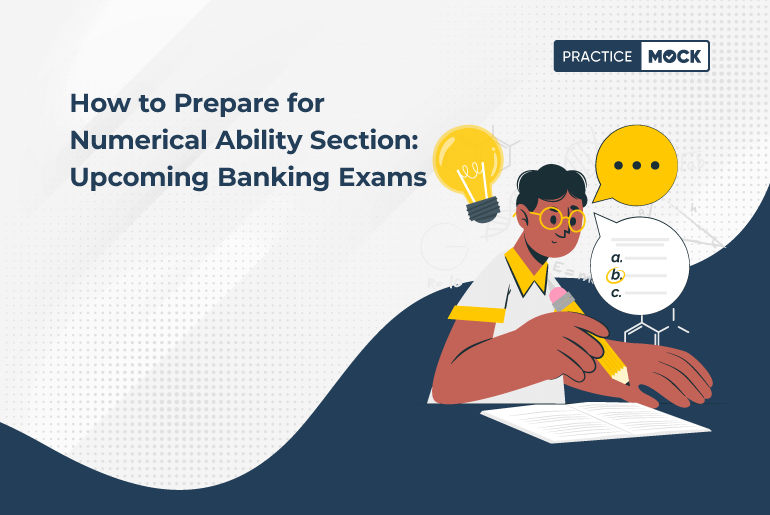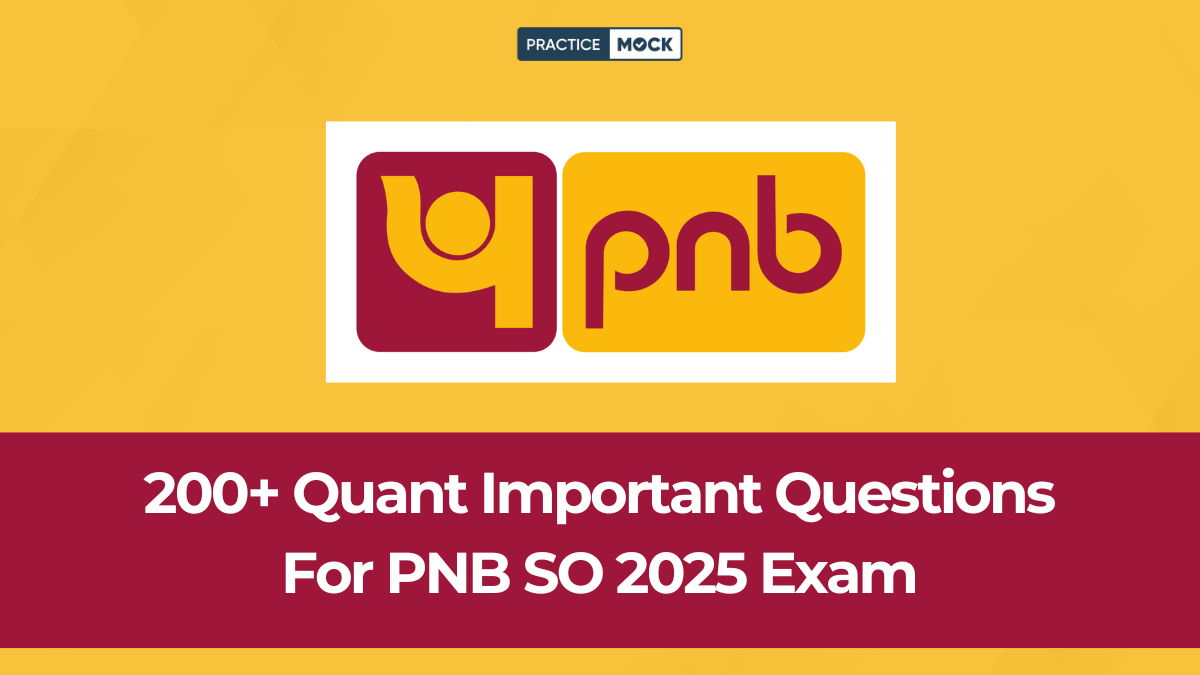How to Prepare for Numerical Ability Section: Upcoming Banking Exams


Sign Up for a Free Mock Test & Analyze Your Preparation
Introduction
Banking exams are a gateway to a promising career in the financial sector. They offer countless opportunities to ambitious individuals looking to establish themselves in the world of banking and finance. Among the various sections of these exams, the Numerical Ability or Quantitative Aptitude section plays a crucial role in assessing candidates’ mathematical and analytical skills.
In this blog, we will provide you with essential tips and strategies to help you prepare effectively for the Numerical Ability section in upcoming banking exams. By following these guidelines, you can enhance your problem-solving abilities, speed, and accuracy, thereby boosting your chances of success.
Sign Up for a Free Mock Test & Get Your All India Rank
- Understand the Syllabus:
Before diving into preparation, it’s vital to familiarize yourself with the topics covered in the Numerical Ability section. Commonly included topics are:
- Arithmetic: Percentages, Profit and Loss, Simple and Compound Interest, Time and Work, Time, Speed, and Distance, etc.
- Algebra: Basic equations, Quadratic Equations, Surds, and Indices, etc.
- Number Systems: LCM and HCF, Divisibility and Remainders, etc.
- Data Interpretation: Tables, Bar Graphs, Line Charts, Pie Charts, etc.
- Mensuration: Area, Perimeter, Volume, etc.
- Build Strong Fundamentals:
Start by brushing up on basic mathematical concepts. Ensure you understand the underlying principles, shortcuts, and formulas for each topic. As you strengthen your foundation, move on to advanced concepts and problem-solving techniques. Practice regularly to solidify your grasp of these concepts.
Sign Up for a Free Mock Test & Topic Tests
- Time Management:
Time management is crucial in banking exams, as you have limited time to attempt a large number of questions. Practice solving problems within a stipulated time frame to improve your speed. Set time targets for different types of questions during your preparation to get comfortable with time-bound challenges.
- Practice Mock Tests:
Mock tests are invaluable for understanding the exam pattern and getting accustomed to the actual test environment. Take regular mock tests to gauge your performance, identify weak areas, and work on them. Analyze your mistakes and learn from them, ensuring you don’t repeat them in the future.
- Learn Shortcuts and Tricks:
In competitive exams, time-saving techniques and shortcuts can make a significant difference. Learn various methods to simplify calculations and solve problems more efficiently. Memorize multiplication tables, squares, and cubes to save time during calculations.
Attempt Your Free Mock Now!!
- Focus on Data Interpretation:
Data Interpretation (DI) questions are an integral part of the Numerical Ability section. Practice interpreting data from various charts and graphs to enhance your skills. Pay attention to accuracy while analyzing complex data sets to avoid errors.
- Revise Regularly:
Consistent revision is essential to retain the concepts you’ve learned. Create a study schedule that allows ample time for revision. Review the formulas, concepts, and tricks regularly to reinforce your memory.
- Stay Updated:
Keep yourself updated with the latest banking exam trends and patterns. Stay informed about any changes in the syllabus or question format. Follow reliable study materials and online resources to stay ahead of the competition.
Conclusion:
Preparing for the Numerical Ability section of banking exams requires dedication, practice, and a strategic approach. By understanding the syllabus, building strong fundamentals, managing time effectively, and practicing with mock tests, you can boost your confidence and performance. Remember, consistent efforts and perseverance are the keys to mastering numerical ability and achieving success in upcoming banking exams. Good luck with your preparation!
Attempt Your Free Mock Now!!
Recent Posts
Best Strategy to Crack RRB Clerk in 1st Attempt
In this article, we are discussing the techniques and best strategy to crack RRB Clerk…
SBI Clerk Prelims Exam Analysis 2025, Check All Shift Review
Here we are providing the SBI Clerk Prelims Exam Analysis 2025, Check 28th Feb 1st…
RBI Grade B Notification 2025, Check Complete Breakdown
Get all the information you need about RBI Grade B 2025 Notification, including Exam Date,…
RRB ALP CBT 2 Admit Card 2025, Admit Card Will Release On 28 April
The RRB will release the RRB ALP CBT 2 Admit Card 2025. In this blog,…
UPSC CSE Final Result 2024 Out, Download Civil Services Merit List PDF
The UPSC has released the UPSC Civil Services Final Result 2024. Candidates can download the…
Reading Comprehension Questions for the SBI PO Mains Exam 2025
In this article we have discussed how the candidates can solve the reading comprehension questions…



